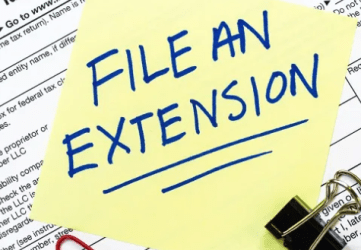Being an independent contractor can offer tremendous flexibility and independence, but it also comes with a unique set of tax responsibilities. Unlike traditional employees, who have taxes automatically withheld from their paychecks, independent contractors must take a more proactive role in managing their tax obligations. Whether you’re working with gig economy platforms like DoorDash, UberEats, or running your own freelance business, it’s essential to understand how to handle your taxes effectively to avoid unnecessary penalties and maximize your deductions. This guide provides comprehensive tax tips to help you navigate the complexities of self-employment taxes.
Understanding Your Tax Obligations
As an independent contractor, you are classified as self-employed. This means that you are responsible for paying both income tax and self-employment tax. The self-employment tax covers your contributions to Social Security and Medicare, which are typically handled by an employer for regular employees. For independent contractors, the self-employment tax rate is 15.3%, which includes 12.4% for Social Security and 2.9% for Medicare. It’s important to account for these taxes when budgeting your income to ensure you’re not caught off guard at tax time.
In addition to federal income tax, you may also be responsible for state and local taxes, depending on where you live and work. Some states have specific requirements for self-employed individuals, so it’s crucial to familiarize yourself with Maryland tax laws. Keep in mind that you might also need to pay estimated quarterly taxes to avoid penalties, which we’ll discuss in more detail below.
Keeping Accurate Records
One of the most critical aspects of managing taxes as an independent contractor is maintaining accurate and detailed records. This includes tracking all sources of income, documenting business expenses, and keeping receipts for any deductible items. Accurate record-keeping not only makes it easier to file your taxes but also provides necessary documentation in the event of an IRS audit. Consider using accounting software designed for small businesses or self-employed individuals to automate and streamline your financial tracking.
Remember that you should keep all tax-related records for at least three years, as this is the statute of limitations for the IRS to audit your returns. In some cases, such as if you underreport your income by more than 25%, the IRS can go back up to six years.
Understanding Deductible Expenses
One of the significant advantages of being an independent contractor is the ability to deduct various business-related expenses, which can significantly reduce your taxable income. Some common deductions include:
- Home Office: If you use a portion of your home exclusively for business, you may qualify for the home office deduction. This allows you to deduct a portion of your rent or mortgage, utilities, and insurance based on the square footage of your office relative to your entire home.
- Vehicle Expenses: Many independent contractors use their vehicles for work-related purposes, such as making deliveries for DoorDash or UberEats. You can deduct either the actual vehicle expenses (such as gas, maintenance, and insurance) or take the standard mileage deduction, which is often simpler and more beneficial.
- Supplies and Equipment: Any tools, supplies, or equipment necessary for your work can be deducted. This includes items like computers, phones, office supplies, and even software subscriptions that you use for business purposes.
- Health Insurance: If you purchase your own health insurance, you may be eligible to deduct the premiums on your tax return. This is a valuable deduction that can help lower your overall tax liability.
- Internet and Phone: If you use the internet and phone for your business, you can deduct a portion of these expenses. Be sure to keep detailed records of how much of these services are used for business versus personal purposes.
Setting Aside Money for Quarterly Estimated Taxes
Unlike employees who have taxes withheld from their paychecks, independent contractors must pay their taxes directly to the IRS through estimated quarterly payments. These payments are due on April 15, June 15, September 15, and January 15 of the following year. Failure to make these payments on time can result in penalties and interest charges.
To calculate your estimated tax payments, use IRS Form 1040-ES, which provides a worksheet to help you estimate your tax liability. It’s a good idea to set aside at least 25-30% of your income to cover these payments, depending on your tax bracket and other financial considerations.
For many contractors, managing these quarterly payments can be challenging, especially if your income fluctuates throughout the year. Consider setting up a separate savings account specifically for taxes, where you can deposit a portion of each payment you receive. This will help ensure you have enough funds available when your estimated taxes are due.
Consider Hiring a Tax Professional
Given the complexities of tax law, many independent contractors find it beneficial to work with a tax professional. A tax expert can help you identify all eligible deductions, ensure compliance with IRS regulations, and provide guidance on managing your tax payments. Additionally, if you face an IRS audit or have concerns about your tax situation, a professional can represent you and help resolve any issues.
At the Law Office of Jason Carr, we specialize in assisting independent contractors with their tax planning and preparation. Our services include audit defense, unfiled tax returns, and handling all IRS notices. We can also help you with offer in compromise negotiations and other tax matters. Whether you’re new to self-employment or a seasoned contractor, our team is here to support you in managing your tax obligations.
Staying Informed About Tax Law Changes
Tax laws are constantly evolving, and staying informed about changes that may impact your tax obligations is crucial. For example, recent legislation has introduced new deductions and credits that could benefit independent contractors. Subscribing to IRS newsletters, following reputable financial news sources, or consulting with a tax professional can help you stay up to date.
Additionally, be aware of the potential tax implications of state laws. While federal tax laws apply across the board, state tax laws can vary significantly, and some states may have additional requirements for self-employed individuals. If you’re working in Maryland, make sure you understand the specific tax rules that apply to you.
Conclusion
Managing taxes as an independent contractor requires proactive planning and attention to detail. By understanding your tax obligations, keeping accurate records, maximizing your deductions, and making timely estimated tax payments, you can minimize your tax liability and avoid penalties. Working with a tax professional can provide additional peace of mind and ensure that your tax situation is handled correctly.
This article is sponsored by the tax professionals at the Law Office of Jason Carr. Contact the Law Office of Jason Carr. Call us at 888-661-6583 for assistance. By working with a tax professional at the Law Office of Jason Carr, you can ensure that your tax situation is handled efficiently and accurately. Services include: audit defense, unfiled tax returns, assisting with all IRS notices, IRS transcripts, offer in compromise negotiations, innocent spouse, multiple years of tax preparation, removing tax liens, stopping IRS levy, crypto taxes, stopping wage garnishments, all other tax matters.






